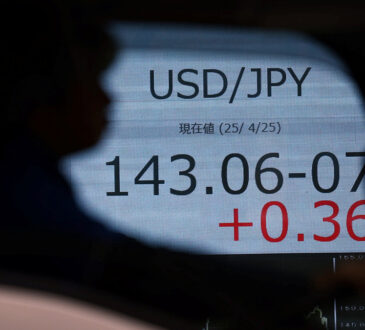Parts of the stock market are already priced for recession, one CIO says

Recurring predictions over the past couple years that a recession in the U.S. was just around the corner may have created a way for investors to ride out a downturn when it actually comes. Brent Schutte, chief investment officer at Northwestern Mutual Wealth Management, told CNBC that his team is shifting toward cheaper parts of the stock market that could hold up better if the economy sours, since those areas already look beaten down. “The world has been talking about a recession for the better part of two years, and people have been investing that way,” Schutte said. When investment pros talk about stocks being cheap, they usually use a valuation metric. Schutte said that the price-to-cash flow ratio for the S & P Small Cap 600 index already looks like it typically does at the end of recessions. The performance of different sized stocks has diverged sharply this year. The S & P 500 is up 14.5% year to date, while the Russell 2000 small cap index is higher by just 1%. The S & P 600 Small Cap index is actually down by almost 2% on the year. .RUT YTD mountain Small cap stocks are lagging behind their larger counterparts. The CIO said that Northwestern, which manages more than $280 billion in assets at the end of 2023, is broadly underweight equities, but overweight small- and mid-cap stocks, as it prepares for a likely recession. “I think they’re already priced for that in some way, shape or form. It doesn’t mean they won’t have downside if a recession hits, but I believe they’ve discounted some of that, and then economic headwinds will turn to tailwinds and I believe those parts of the market do well,” said Schutte, who holds an MBA from the University of Chicago Booth School of Businesss. The U.S. economy has defied predictions of a recession ever since the initial rebound from Covid-era health restrictions. However, there have been increased signs of stress recently, including rising default rates on credit cards, weaker consumer spending and a softer jobs market. “I think you’re still likely to have a recession, because I do think the longer rates remain elevated … the more those rates work their way into the economy and potentially into the market,” Schutte said. But the bet on small-cap stocks could work even if the Federal Reserve does manage to steer the economy to a soft landing, according to Schutte. A prolonged economic expansion would probably see a broader group of winners, he reasoned. A broader rally could show up not only in small caps, but also in equal-weighted funds like the Invesco S & P 500 Equal Weight ETF (RSP) . That fund, which has less exposure to stocks like Nvidia and Microsoft than traditional index funds, is up about 4% on the year. Small-cap index funds like the iShares Russell 2000 ETF (IWM) are a cheap and easy way for investors to get exposure to that segment of the market, though Schutte said his team uses actively-managed funds within its small cap allocation.




